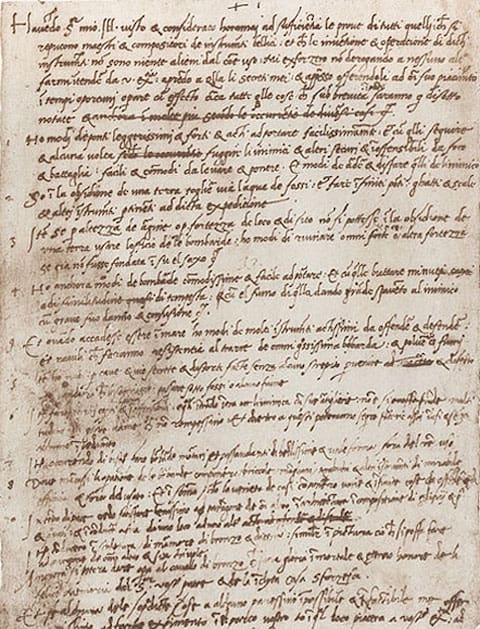
Your resume is the first impression that your employer will have on you. It’s your first foot in the door and will determine if you move onto the next stage in the hiring process.
Have you ever stopped to wonder about the resume’s origin, though?
After all, where did this document get its start? Have we always written out lists of our accomplishments to hand to potential employers?
Curious about the origin of the resume, our team at Y Scouts did some digging into the past of the resume and uncovered thought-provoking history.
The Origin of The Word Resume
Linguistically, the word resume—or résumé—originated in the early 19th-century French language. This term was commonly used as a past participle, meaning it was used as a noun, for the word résumer, and translates to “resumed.”
Today, this word is generally used to refer to the document we compile of our education, experiences, and so on. However, another definition says that the word can also mean a summary.
Have Resumes Changed Since Their Origin?
Knowing a little linguistic background about the word resume gives us some context on how we perceive this document. Resumes haven’t changed after more than 500 years. What does this mean, exactly?
It has been safely assumed that the details within a resume create a complete summary of a person for hundreds of years.
Regardless, after all this time, the same question remains:
Does a piece of paper capture the purpose and profound connection of a person?
The simple answer is this: a resume may cover your skills and experiences, but it is not an all-encompassing document on who you are as a person.
Perhaps one of the most famous examples of a resume is the letter written by Leonardo da Vinci in 1482 to the Duke of Milan to sell his experience.
This is the resume Leonardo da Vinci used in 1482 to sell his experience to the Duke of Milan, pictured below:

In Leonardo da Vinci’s case, the resume misses out on the ‘who I am’ and ‘where I’m going.’
You can read the translation of the resume below. After reading the transcript, you’ll see that the resume of a 30-year old Leonardo da Vinci is not much different than what you’d find from a 30-year-old today.
Before you learn more about the famous Renaissance artist, you’re likely asking yourself this:
What does any of this mean to me as a leader of my business?
The moral of the resume’s origin story is that documents like resumes only give us part of the bigger picture. As you’ll soon read, everything we know about da Vinci isn’t included in this resume that he wrote to the Duke of Milan.
We can guess that the Duke of Milan did not judge da Vinci’s value on this resume alone. So, the next time you review a candidate’s resume, remember this story and open your mind to other factors you can learn about your candidates.
Resume Origin Transcript: Describing One of the Greatest Artists Ever
Most Illustrious Lord,
Having now sufficiently considered the specimens of all those who proclaim themselves skilled contrivers of instruments of war, and that the invention and operation of the said instruments are nothing different from those in common use: I shall endeavor, without prejudice to any one else, to explain myself to your Excellency, showing your Lordship my secret, and then offering them to your best pleasure and approbation to work with effect at opportune moments on all those things which, in part, shall be briefly noted below.
1. I have a sort of extremely light and strong bridges, adapted to be most easily carried, and with them you may pursue, and at any time flee from the enemy; and others, secure and indestructible by fire and battle, easy and convenient to lift and place. Also methods of burning and destroying those of the enemy.
2. I know how, when a place is besieged, to take the water out of the trenches, and make endless variety of bridges, and covered ways and ladders, and other machines pertaining to such expeditions.
3. If, by reason of the height of the banks, or the strength of the place and its position, it is impossible, when besieging a place, to avail oneself of the plan of bombardment, I have methods for destroying every rock or other fortress, even if it were founded on a rock, etc.
4. Again, I have kinds of mortars; most convenient and easy to carry; and with these I can fling small stones almost resembling a storm; and with the smoke of these cause great terror to the enemy, to his great detriment and confusion.
5. And if the fight should be at sea I have kinds of many machines most efficient for offense and defense; and vessels which will resist the attack of the largest guns and powder and fumes.
6. I have means by secret and tortuous mines and ways, made without noise, to reach a designated spot, even if it were needed to pass under a trench or a river.
7. I will make covered chariots, safe and unattackable, which, entering among the enemy with their artillery, there is no body of men so great but they would break them. And behind these, infantry could follow quite unhurt and without any hindrance.
8. In case of need I will make big guns, mortars, and light ordnance of fine and useful forms, out of the common type.
9. Where the operation of bombardment might fail, I would contrive catapults, mangonels, trabocchi, and other machines of marvellous efficacy and not in common use. And in short, according to the variety of cases, I can contrive various and endless means of offense and defense.
10. In times of peace I believe I can give perfect satisfaction and to the equal of any other in architecture and the composition of buildings public and private; and in guiding water from one place to another.
11. I can carry out sculpture in marble, bronze, or clay, and also I can do in painting whatever may be done, as well as any other, be he who he may.
Again, the bronze horse may be taken in hand, which is to be to the immortal glory and eternal honor of the prince your father of happy memory, and of the illustrious house of Sforza.
And if any of the above-named things seem to anyone to be impossible or not feasible, I am most ready to make the experiment in your park, or in whatever place may please your Excellency – to whom I comment myself with the utmost humility, etc.
[fusion_alert type=”general” class=”custom-fusion-alert-grey”]Y Scouts is an executive search firm that helps nonprofits and social enterprises find exceptional leaders. Contact us if you are looking to find an exceptional leader. To be considered for exceptional leadership opportunities with our clients, please take the first step by joining the Y Scouts Leadership Community.[/fusion_alert]
